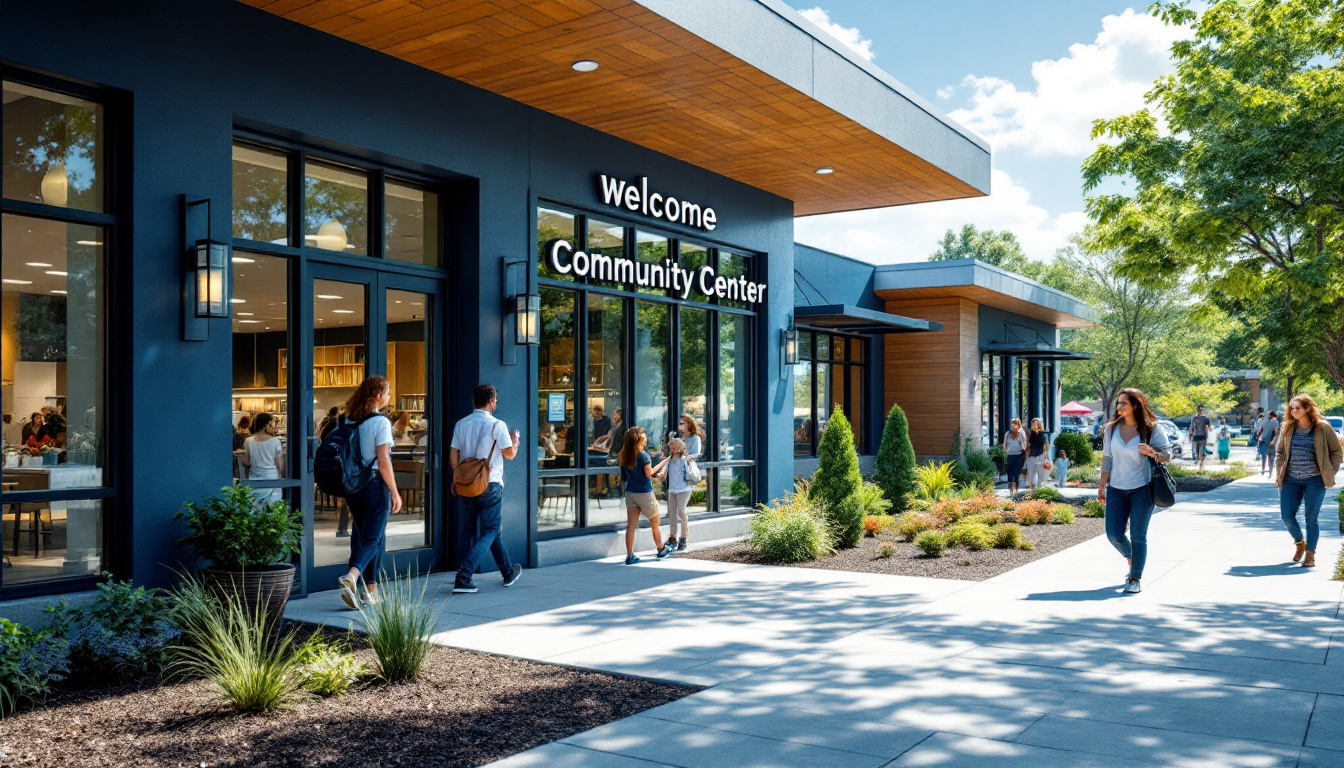
Understanding the Transition from School-Based Support to Adult Disability Services
Transitioning from school-based programs to adult services such as those provided by the Division of Developmental Disabilities (DDD) is a critical process that ensures continuity of care and support for individuals with developmental disabilities. This guide offers a comprehensive overview of the steps, resources, and best practices to facilitate a successful transition, emphasizing early planning, eligibility requirements, and interagency collaboration.
Overview of the Division of Developmental Disabilities (DDD)
 The Division of Developmental Disabilities (DDD) is a state agency dedicated to providing support and services to individuals with developmental disabilities. Its primary purpose is to enhance the quality of life for these individuals by offering tailored assistance in areas such as employment, residential living, and community participation.
The Division of Developmental Disabilities (DDD) is a state agency dedicated to providing support and services to individuals with developmental disabilities. Its primary purpose is to enhance the quality of life for these individuals by offering tailored assistance in areas such as employment, residential living, and community participation.
Support and services offered by DDD include personalized support plans, supported employment programs, residential options, behavioral supports, and community integration efforts. A key component of DDD’s approach is the assignment of support coordinators, who work closely with individuals and their families to develop and implement services that are specifically suited to each person’s needs, strengths, and preferences.
The importance of these personalized plans cannot be overstated. They guide the delivery of services and ensure that each individual receives appropriate, goal-oriented support, facilitating a successful transition from childhood supports to adult living. By focusing on individual empowerment and community involvement, DDD helps people with developmental disabilities lead more independent and fulfilling lives.
More information about DDD resources can be obtained through virtual Welcome Sessions, Transition Thursdays, and community events like transition fairs. These platforms offer valuable insights into available services, employment opportunities, and community supports. Families and individuals can also request presentations or schedule one-on-one Family Guidance Days with DDD staff to discuss their specific needs and understand the support options that best fit their circumstances.
Step-by-Step Guide to Transition Planning

Early assessment and planning
Transition planning should start early, ideally around age 14-16, and be incorporated into the student’s Individualized Education Program (IEP). This process involves setting post-secondary goals related to education, employment, independent living, and community participation. Schools often conduct assessments and develop transition statements that highlight the child's strengths, interests, and needs, fostering a shared focus on future planning.
Application for Medicaid and DDD eligibility
As students approach age 18, families should begin applying for Medicaid and Department of Developmental Disabilities (DDD) services. This involves submitting applications through local community services offices or directly via the DDD website, accompanied by necessary documentation such as medical and developmental records. Medicaid eligibility is a prerequisite for DDD services, which can be confirmed through automated checks or SSI applications.
Completing assessments like NJCAT
A vital step in the process is completing the NJ Comprehensive Assessment Tool (NJCAT), which evaluates an individual’s support needs across areas including self-care, behavior, and medical requirements. The NJCAT results categorize support needs into tiers (A to E), each associated with a different compensation level and service level. An intake coordinator reviews this assessment to guide service planning and supports allocation.
Choosing support coordination agencies
Families should research and select a support coordination agency before graduation, ideally between February and March of the senior year. They can explore agency options using the DDD provider search database. Once an agency is chosen, support coordinators work with the individual and family to develop a personalized service plan (ISP), which should be finalized before the student exits school to ensure continuous support.
Transition timeline
A clear timeline guides students from application to service implementation. Support coordination agencies are typically assigned based on preferences and capacity after submitting the SCA Selection Form. Coordination of services begins around April, with the ISP finalized by June, enabling services to be in place upon graduation or the individual turning 21.
Supporting ongoing success
Throughout this process, active participation from families, educators, and support teams is essential. Participation in transition fairs, webinars, and resource days helps families understand available supports and advocate for their loved ones. Early and proactive engagement ensures a smoother transition, enabling young adults with developmental disabilities to access necessary services seamlessly and pursue their independent life goals.
Effective Practices and Resources for Successful Transition

What are the best practices for ensuring a successful transition?
Successful transition for individuals with developmental disabilities depends heavily on early and thorough planning, ideally starting around ages 14 to 16. This process involves building a multidisciplinary team that includes family members, educators, support coordinators, and community providers. Together, they develop a person-centered plan tailored to the individual's goals in areas like employment, education, and independence.
Utilizing assessment tools such as the Person-Centered Planning Portfolio and Life Course tools helps identify strengths, preferences, and support needs. As the individual progresses, real-world experiences like supported employment and community access activities prepare them for post-school life.
Regular review meetings facilitate updates to the plan, ensuring services stay aligned with ever-evolving needs. Coordinators play a vital role in early service onboarding, guiding families and individuals through the transition timeline to ensure seamless support upon graduation.
How can services between educational supports and community-based agencies be coordinated?
Effective coordination requires open communication and established partnerships among schools, community agencies, families, and individuals. Transition teams should hold regular planning sessions, share pertinent information, and set aligned goals.
Support coordinators act as liaisons, helping to connect individuals with employment programs, housing supports, healthcare, and recreational activities. Formal agreements, such as Memoranda of Understanding (MOUs), clarify roles and responsibilities of each agency. Utilizing shared electronic records ensures that support plans are accessible, current, and person-centered. These practices enable a smooth transition where services are integrated, flexible, and responsive to individual needs.
What legal and policy factors should be considered during transition?
Legal considerations are fundamental in transition planning. Federal laws like the Individuals with Disabilities Education Act (IDEA) and the Americans with Disabilities Act (ADA) set protections for educational access and nondiscrimination rights. Policies should define clear timelines—for example, initiating transition planning by age 14—and specify confidentiality and guardianship procedures.
Guardianship, supported decision-making, and legal capacity are vital topics, ensuring individuals retain autonomy while receiving necessary supports. Funding policies, including Medicaid waiver programs such as the Long-term Supports Services Waiver, influence available services and support structures.
Aligning transition practices with state regulations and policies ensures equitable access, legal compliance, and respect for individual rights, creating an inclusive environment that fosters independence and community engagement.
Post-Transition Support and Available Services
 After transitioning from school-based services, individuals with developmental disabilities can access a broad range of supports tailored to promote independence and community participation.
After transitioning from school-based services, individuals with developmental disabilities can access a broad range of supports tailored to promote independence and community participation.
Employment and vocational supports form a core component of adult services. Agencies such as Vocational Rehabilitation provide supported employment options, job coaching, internships, and vocational training. These services help individuals find and maintain meaningful work, develop workplace skills, and enhance self-sufficiency.
Residential and community services are essential for many adults. These include supervised living arrangements, supported housing, personal care homes, and community-based living programs. These options offer varying levels of assistance based on individual needs and preferences.
Health and social supports continue to play a vital role. Mental health services, medical care coordination, and case management help address ongoing health needs. Therapeutic recreation, social skills training, and peer support programs foster social inclusion and personal growth.
For ongoing guidance, numerous resources are available. State and local agencies provide support planning, access to services, and legal guidance. Organizations such as the PACER Center, Autism NJ, and The Arc of New Jersey offer valuable information about adult services, legal guardianship, housing, and employment options. These groups facilitate webinars, family guidance days, and community resource fairs, helping families and individuals navigate the complexities of adult life.
Continuity of support is fundamental to success after transition. Tailored, person-centered approaches ensure that services evolving with needs foster independence, community integration, and a high quality of life.
Empowering a Successful Transition to Adulthood
Transitioning from school-based supports to adult services like DDD requires early planning, coordination, and utilization of available resources. By engaging families, professionals, and community agencies early in the process, individuals can access tailored supports that promote independence, community participation, and lifelong success. Staying informed about legal rights, funding options, and available programs ensures a seamless and empowering journey into adulthood.
References
- Transition from School to Adult Life - NJ.gov
- [PDF] Office of Transition to Adult Life and Employment - NJ.gov
- Family support, early intervention essential for transition to adult ...
- How Can I Prepare for My Child's Transition into School-based ...
- Individuals with Developmental Disabilities Turning 21 - SCARC
- The Transition from School to Supported Employment:
- [PDF] a timeline for students exiting school and turning 21 - AWS
- DDD & Support Coordination | Ridgewood Public Schools












